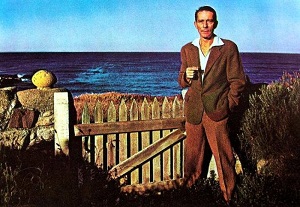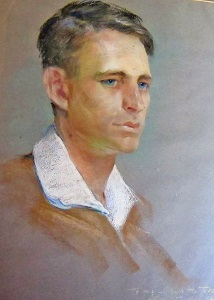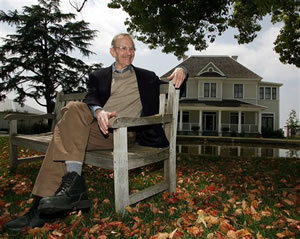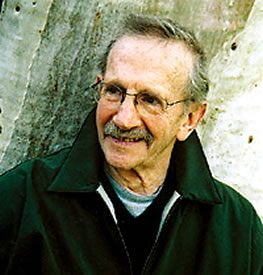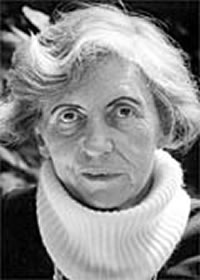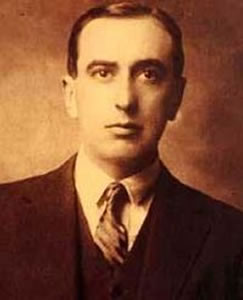De Spaanse schrijver Antonio Muñoz Molina werd geboren op 10 januari 1956 in Úbeda in de provincie Jaén. Hij studeerde journalistiek in Madrid en kunstgeschiedenis in Granada. Zijn journalistieke werk werd in diverse boeken gebundeld. Zijn debuutroman Beatus Ille (1986) en zijn tweede roman El invierno en Lisboa (1987) werden met belangrijke Spaanse prijzen bekroond. Zijn roman Ruiter in de storm werd in Spanje in een eerste oplage van 300.000 exemplaren gedrukt en won de prestigieuze Premio Planeta.
Uit: Sepharad (Vertaald door Margaret Sayers Peden)
„The owner of the Museo is a countryman of ours who, as Godino says, often personally oversees the catering of our feasts, in which there isn’t a single ingredient that hasn’t come from our city, not even the bread, which is baked in La Trini’s oven, the very oven that to this day produces the mouthwatering madeleines and the Holy Week cakes with a hard-boiled egg in the center that we loved so much when we were kids. Now, to tell the truth, we realize that the oily dough sits a little heavy on our stomachs, and though in our conversations we keep praising the savor of those hornazos, which are absolutely unique in the world and no one but us knows the name of, if we start eating one, we quit before we’re through, even though it’s painful to waste food-something our mothers always taught us. We remember the early days in Madrid, when we used to go to the bus station to pick up a food package sent from home: cardboard boxes carefully sealed with tape and tightly tied with cord, bringing from across all that distance the undiluted aroma of the family kitchen, the delicious abundance of all the things we have missed and yearned for in Madrid: butifarros and chorizos, sausages from the recent butchering, borrachuelos sparkling with sugar, even a glass jar filled with boiled red pepper salad seasoned with olive oil, the greatest delicacy you can ask for in a lifetime. For a while the dim interior of the armoire in our boardinghouse room would take on the succulent and mysterious penumbra of those cupboards where we kept food in the days before the advent of refrigerators. (Now when I tell my children that back when I was their age there was no refrigerator or television in my house, they don’t believe it, or worse yet, they look at me as if I were a caveman.)“

Antonio Muñoz Molina (Úbeda, 10 januari 1956)
De Duitse dichteres en schrijfster Annette von Droste-Hülshoff werd op 10 januari 1797 op het slot Hülshoff in Westfalen geboren. Zie ook mijn blog van 10 januari 2007 en mijn blog van 31 december 2007. Zie eveneens mijn blog van 10 januari 2008.
Ein harter Wintertag
Daß ich dich so verkümmert seh’,
Mein lieb lebend’ges Wasserreich,
Daß ganz versteckt in Eis und Schnee
Du siehst der plumpen Erde gleich;
Auch daß voll Reif und Schollen hängt
Dein überglaster Fichtengang:
Das ist es nicht, was mich beengt,
Geh’ ich an deinem Bord entlang.
Zwar in der immer grünen Zier
Erschienst, o freundlich Elemet,
Du ähnlich den Oasen mir,
Die des Arabers Sehnsucht kennt;
Wenn neben der verdorrten Flur
Erblühten deine Moose noch,
Wenn durch die schweigende Natur
Erklangen deine Wellen doch.
Allein auch heute wollt’ ich gern
Mich des kristallnen Flimmers freun,
Belauschen jeden Farbenstern
Und keinen Sommertag bereun:
Wär’ nicht dem Ufer längs, so breit,
Die glatte Schlittenbahn gefegt,
Worauf sich wohl zur Mittagszeit
Gar manche rüst’ge Ferse regt.
Bedenk’ ich nun, wie manches Jahr
Ich nimmer eine Eisbahn sah:
Wohl wird mir’s trüb und wunderbar,
Und tausend Bilder treten nah.
Was blieb an Wünschen unerfüllt,
Das nähm’ ich noch gelassen mit:
Doch ach, der Frost so manchen hüllt,
Der einst so fröhlich drüber glitt!
Der Weiher
Er liegt so still im Morgenlicht,
So friedlich, wie ein fromm Gewissen;
Wenn Weste seinen Spiegel küssen,
Des Ufers Blume fühlt es nicht;
Libellen zittern über ihn,
Blaugoldne Stäbchen und Karmin,
Und auf des Sonnenbildes Glanz
Die Wasserspinne führt den Tanz;
Schwertlilienkranz am Ufer steht
Und horcht des Schilfes Schlummerliede;
Ein lindes Säuseln kommt und geht,
Als flüstre’s: Friede! Friede! Friede! —
Annette von Droste-Hülshoff (10 januari 1797 – 24 mei 1848)
In de tuin van Burg Hülshoff
De Algerijnse schrijver Yasmina Khadra (pseudoniem van Mohammed Moulessehoul) werd geboren op 10 januari 1955 in Kenadsa. Zie ook mijn blog van 10 januari 2008.
Uit: Ce que le jour doit à la nuit
„Accroupi sur un amas de pierraille, les bras autour des genoux, il regardait la brise enlacer la sveltesse des chaumes, se coucher dessus, y fourrager avec fébrilité. Les champs de blé ondoyaient comme la crinière de milliers de chevaux galopant à travers la plaine. C’était une vision identique à celle qu’offre la mer quand la houle l’engrosse. Et mon père souriait. Je ne me souviens pas de l’avoir vu sourire; il n’était pas dans ses habitudes de laisser transparaître sa satisfaction – en avait-il eu vraiment?… Forgé par les épreuves, le regard sans cesse aux abois, sa vie n’était qu’une interminable enfilade de déconvenues; il se méfiait comme d’une teigne des volte-face d’un lendemain déloyal et insaisissable.…’
Je ne lui connaissais pas d’amis.
Nous vivions reclus sur notre lopin de terre, pareils à des spectres livrés à eux-mêmes, dans le silence sidéral de ceux qui n’ont pas grand-chose à se dire: ma mère à l’ombre de son taudis, ployée sur son chaudron, remuant machinalement un bouillon à base de tubercules aux saveurs discutables; Zahra, ma cadette de trois ans, oubliée au fond d’une encoignure, si discrète que souvent on ne s’apercevait pas de sa présence; et moi, garçonnet malingre et solitaire, à peine éclos que déjà fané, portant mes dix ans comme autant de fardeaux.
Ce n’était pas une vie; on existait, et c’est tout.
Le fait de se réveiller le matin relevait du miracle, et la nuit, lorsqu’on s’apprêtait à dormir, on se demandait s’il n’était pas raisonnable de fermer les yeux pour de bon, convaincus d’avoir fait le tour des choses et qu’elles ne valaient pas la peine que l’on s’attardât dessus. Les jours se ressemblaient désespérément; ils n’apportaient jamais rien, ne faisaient, en partant, que nous déposséder de nos rares illusions qui pendouillaient au bout de notre nez, semblables aux carottes qui font avancer les baudets. »
Yasmina Khadra (Kenadsa, 10 januari 1955)
De Amerikaanse dichter en schrijver Dennis Cooper werd geboren op 10 januari 1953 in Arcadia, Californië. In zijn jeugd imiteerde hij het werk van Rimbaud, Verlaine, de Sade en Baudelaire. In 1976 reise hij naar Londen en hield zich een tijd op in de punkscene. Hij richtte er ook het tijdschrift Little Caesar Magazin op. Door het succes ervan kon hij in 1978 de uitgeverij Little Caesar Press beginnen, waarin hij werk van o.a. Amy Gerstler, Elaine Equi, Tim Dlugos, Joe Brainard en Eileen Myles publiceerde. In 1987 ging Cooper naar Amsterdam waar hij zijn roman Closer voltooide. Ook schreef hij er voor tijdschriften als Art in America, The Advocate, en Village Voice. Datzelfde jaar keerde hij terug naar New York en in 1990 verhuisde hij naar Los Angeles. Daar voltooide hij de vijfdelige romancyclus George Miles. Ander
werk volgde, zoals: My Loose Thread, The Sluts en God Jr.Sinds 2006 woont Cooper in Parijs.
THE FAINT
for Paul Otchakovsky-Laurens
This is an immaterial poem about a ghost,
name of Dennis. I appear less important
to those few among you who knew me
when I was composed more realistically.
Once my empty sockets seemed like evil
eyes to you, and you had no idea their
trick wasn’t great art. Now I barely exist,
but train your sights on this nevertheless.
It’s past your bedtime. I’ve painted myself
into a corner. A ghost has been sketched
here haphazardly. I’m still myself but inspire
no illusions no matter how I’m executed.
To believe in a ghost was small potatoes.
next to the fear in your eyes. I scared you.
All I was is this marked up white sheet, so
I ask you again. Read into my black holes.
FRIENDSHIP
Like Craig L., journalist, hopelessly in love with the fourteen year old bassist of Red Kross but prevented by law from confessing his feelings or getting said rock star drunk enough to grope or blow him unbeknownst. So Craig raves about Red Kross in the Los Angeles Times and gets to be the kid’s best friend and watch him skinny dip one night in his parents’ backyard pool, and that’s enough. Or Steve O., med student, who bought some unrequited sex with a fourteen year old Mexican who’d snuck into the States from Tijuana. Jorge looked staggering in clothes but just poignantly poor and addicted to heroin without them, though Steve is too consumed these days with getting him off dope to remember how that felt. Steve can’t begin to taste or smell what made their life together worth it. So he works the lack of love into his usual feelings and calls it friendship
Dennis Cooper (Arcadia, 10 januari 1953)
De Chileense dichter Vicente García-Huidobro Fernández werd op 10 januari 1893 geboren in Santiago. Als zoon van Vicente García-Huidobro en María Luisa Fernández Bascuñán behoorde hij tot een rijke aristocratische familie van katholieke gezindte. Huidobro was de oudste van zes broers en de toekomstige beheerder van het familievermogen.Zijn eerste gedicht “El Cristo del monte” (Christus op de berg) verscheen op 15 oktober 1910 in La Estrella de Andacollo. Huidobro studeerde Letteren aan de Universidad de Chile, in Santiago. In het Atheneum in Santiago sprak hij in 1914 de rede “Non serviam” uit, de fundamentele stellingname van zijn esthetische credo. Hij publiceerde Pasando y Pasando (Voorbijgaan en Voorbijgaan), waarin hij duchtig van leer trok tegen maatschappij en religie, en daarbij vooral de jezuïeten niet spaarde. In 1916, na de succesvolle publicatie van verscheidene
dichtbundels in Chili en bekendheid en na erkenning te hebben genoten met literaire manifesten zoals Nonserviam vertrok hij naar Parijs. Daar werkte hij samen met de avant-gardistische Franse dichters zoals Guillaume Appolinaire en Pierre Réverdy aan het invloedrijke literair blad Nord-
Sud. Hij ging vervolgens naar Madrid in 1918, waar hij enthousiast werd ontvangen in de plaatselijke literaire avant-gardistische kringen en werd in 1921 een van de oprichters van Ultraísmo, de Spaanse versie van Creacionismo .(Avantgarde) Hij reisde veel van Europa naar Chili en omgekeerd en stond grotendeels aan de basis van een klimaat van literaire experimenten gebaseerd op de Franse voorbeelden. Zijn werk heeft een grote invloed uitgeoefend op de latere generaties van Latijns-
Amerikaanse dichters.
Stunden
Eine kleine Stadt
Ein auf der Ebene haltender Zug
Taube Sterne schlafen
in jeder Pfütze
Und das Wasser zittert
Vorhänge im Wind
Die Nacht hängt in den Bäumen der Allee
Im blumenbewachsenen Turm
Blutet ein beständiges Tröpfeln
Die Sterne aus
Dann und wann
Fallen die reifen Stunden
Auf das Leben
Nacht
Die Nacht gleitet hörbar über den Schnee
Das Lied fiel aus den Bäumen
Und durch den Nebel klangen Stimmen
Ich zündete meine Zigarre an einem Blick an
Mit jedem Öffnen der Lippen
Überflute ich die Leere mit Wolken
Im Hafen
Sind die Masten voller Nester
Und der Wind
seufzt in den Flügeln der Vögel
DIE WELLEN WIEGEN DAS TOTE SCHIFF
Ich pfeifend am Ufer
Betrachte den zwischen meinen Fingern glimmenden Stern
Vertaald door Johannes Beilharz
Vicente Huidobro (10 januari 1893 – 2 januari 1948)
De Amerikaanse dichter en schrijver John Robinson Jeffers werd geboren op 10 januari 1887 in Allegheny, nu Pittsburgh, Pennsylvania. Zijn familie stimuleerde hem in zijn literaire ambities. Hij kreeg les in Hebreeuws, Latijn en Grieks en werd naar privéscholen gestuurd in Duitsland en Zwitserland, waar hij Duits en Frans leerde en onder de invloed kwam van de geschriften van Freud en Nietzsche. Vanaf zijn vijftiende jaar studeerde hij aan verschillende universiteiten astronomie, geologie, filologie, filosofie, theologie en medicijnen. Zijn eerste dichtbundel Flagons and Apples verscheen in 1912, maar pas in 1924 kreeg hij grotere bekendheid met zijn vertellende gedicht Tamar. Het boek werd een verkoopsucces en betekende voor Jeffers het begin van een productieve tijd. In de jaren erna ontstonden de gedichten Roan Stallion (1925), The Tower Be
yond Tragedy (1926), The Woman at Point Sur (1927), Cawdor (1928) en Dear Judas (1929). Vanaf midden jaren twintig was Jeffers een gevestigd schrijver.
Be Angry At The Sun
That public men publish falsehoods
Is nothing new. That America must accept
Like the historical republics corruption and empire
Has been known for years.
Be angry at the sun for setting
If these things anger you. Watch the wheel slope and turn,
They are all bound on the wheel, these people, those warriors.
This republic, Europe, Asia.
Observe them gesticulating,
Observe them going down. The gang serves lies, the passionate
Man plays his part; the cold passion for truth
Hunts in no pack.
You are not Catullus, you know,
To lampoon these crude sketches of Caesar. You are far
From Dante’s feet, but even farther from his dirty
Political hatreds.
Let boys want pleasure, and men
Struggle for power, and women perhaps for fame,
And the servile to serve a Leader and the dupes to be duped.
Yours is not theirs.
Time Of Disturbance
The best is, in war or faction or ordinary vindictive
life, not to take sides.
Leave it for children, and the emotional rabble of the
streets, to back their horse or support a brawler.
But if you are forced into it: remember that good and
evil are as common as air, and like air shared
By the panting belligerents; the moral indignation that
hoarsens orators is mostly a fool.
Hold your nose and compromise; keep a cold mind. Fight,
if needs must; hate no one. Do as God does,
Or the tragic poets: they crush their man without hating
him, their Lear or Hitler, and often save without
love.
As for these quarrels, they are like the moon, recurrent
and fantastic. They have their beauty but night’s
is better.
It is better to be silent than make a noise. It is better
to strike dead than strike often. It is better not
to strike.
Robinson Jeffers (10 januari 1887 – 20 januari 1962)
De Duitstalige, uit Namibië stammende, schrijver Giselher Werner Hoffmann werd geboren op 10 januari 1958 in Windhoek. Hoffmann is de kleinzoon van emigranten naar de toenmalige kolonie Duits-Zuidwest-Afrika. Hij werkte jarenlang als jager in de Kalahari woestijn. In 1989 verscheen zijn roman „Land der wasserlosen Flüsse“, waarin hij een ontmoeting beschrijft tussen twee blanke boeren en de bosjesmannen. Het boek maakte hem internationaal bekend. In 1991 verscheen „Die verlorenen Jahre“. Daarin gaat het over de internering van de Duitse bevolking tijdens WO II. Hoffmann verblijft per jaar enkele weken in Duitsland, zoekt ook het contact met Duitse schrijvers, maar woont verder als zelfstandig schrijver in Swakopmund aan de atlantische kust.
Uit: Die verlorenen Jahre
“Dr. Gallant aß für sein Leben gern Fisch, am liebsten in Butter gebratenen und mit einer Remouladensoße garnierten Kabeljau. Und so erschien er an jenem Freitag, trotz seiner ungezählten Pflichten als Rechtsanwalt, Sprecher des Deutsch Südwest Bundesund Mitglied des Landesrates, pünktlich zum Mittagessen. Er entkorkte eine Flasche Tafelwein, setzte sich gut gelaunt zu seiner Frau an den Tisch und wollte sich gerade eine halbierte Salzkartoffel in den Mund schieben, als hinter ihm die Stimme des Nachrichtensprechers, verzerrt vom Rauschen und Summen der Statik, den Zweiten Weltkrieg ankündigte.”
Giselher Werner Hoffmann (Windhoek, 10 januari 1958)
Windhoek (Geen portret beschikbaar)
De Russische schrijver Alexei Tolstoy werd geboren op 10 januari 1883 in Sosnovka. In 1901 ging hij naar Sint Petersburg om wiskunde te studeren. Daar begon hij gedichten te schrijven in de stijl van Nekrasov. In 1907, kort voor het afstuderen, gaf hij de studie op om zich aan de literatuur te wijden. Zijn eerste gedichtenbundel verscheen in 1908. Tijdens WO I was hij oorlogsverslaggever in Engeland en Frankrijk. Hij stond afwijzend tegenover de oktoberrevolutie en in 1921 vestigde hij zich in Berlijn. In 1923 accepteerde hij het nieuwe regime en keerde naar Rusland terug. Wel hield hij afstand van
de autoriteiten en richtte hij zich op het schrijven van science-fiction. Zijn romantrilogie The Road to Calvary (1922-41) tendeerde al naar de socialistische literatuur. Zijn onvoltooide roman Peter de Grote wordt als zijn belangrijkste werk beschouwd.
Uit: Ordeal
„She had no pass, but the old watchman at the gate only winked at her, saying: “You’ve come for the meeting, lass, have you? It’s in the main building.”
She picked her way over rotting planks, past heaps of rusty scrap iron and slag, past huge broken windows. There was nobody about, and the chimney stacks smoked peacefully against the cloudless sky.
Somebody pointed to a grimy door in the wall. Entering, she found herself in a long hall with walls of bare brick. The murky light filtered through a smoke-blackened glass roof. Everything was naked and exposed. Chains hung from the platforms of over-head cranes. Lower down were transmission shafts, their driving belts hanging motionless from the pulleys. Her unaccustomed eye turned in astonishment from dark lathes to the squat, lanky or straddling forms of all sorts of planing, milling and mortising machinery, and the iron discs of friction clutches. She discerned the outlines of a giant steam hammer, hanging lopsided in the semidarkness of a wide arch.
Here were made the machinery and mechanisms which supplied the life beyond the sombre walls of the factory with light, warmth, movement, significance and luxury. There was a smell of iron filings, machine oil, earth, and home-grown tobacco. A vast crowd of men and women were standing in front of a wooden platform, and many others perched on the side plates of machines and on the high window-sills.“

Alexei Tolstoy (10 januari 1883 – 23 februari 1945)
De Nederlandse dichteres en schrijfster Mies Bouhuys werd geboren op 10 januari 1927 in Weesp. Zie ook mijn blog van 10 januari 2008.
De schapen
In hun wollen winterjas
staan de schapen in het gras
dag en nacht te dromen.
Dromen… dromen… dromen maar:
katjes in de hazelaar,
blaadjes aan de bomen,
boterbloemen langs de weg,
vogelnestjes in de heg.
’s Morgens kom ik er voorbij
en dan kijken ze naar mij.
Ik zeg: wat een winter hè.
Bè, roepen de schapen, bè.
Maar vanmorgen…
Enkel oog en enkel oor
waren ze. Waarvoor? Waarvoor?
Toen ik goeie morgen zei,
keek niet eentje op naar mij.
Midden in de schapenkring
stond een klein wit wollen ding,
zonder mutsje, zonder jasje,
zonder sokjes, zonder dasje
huppelde het in het rond
op de hardbevroren grond.
Lammetje bè, lammetje mè,
dat was een verrassing, hè.
Mies Bouhuys (10 januari 1927 – 30 juni 2008)
De Amerikaanse dichter Philip Levine werdgeboren op 10 januari 1928 in Detroit, Michigan. Hij begon met het schrijven van gedichten in de tijd dat hij ’s avonds studeerde en overdag werkte in een van Detroits autofabrieken. Het familieleve, het sociale en economische leven in het Detroit van de 20e eeuw is een terugkerend thema in zijn werk. In 1995 ontving hij de Pulitzer Prize for Poetry voor The Simple Truth.
A Sleepless Night
April, and the last of the plum blossoms
scatters on the black grass
before dawn. The sycamore, the lime,
the struck pine inhale
the first pale hints of sky.
An iron day,
I think, yet it will come
dazzling, the light
rise from the belly of leaves and pour
burning from the cups
of poppies.
The mockingbird squawks
from his perch, fidgets,
and settles back. The snail, awake
for good, trembles from his shell
and sets sail for China. My hand dances
in the memory of a million vanished stars.
A man has every place to lay his head.
The Distant Winter
from an officer’s diary during the last war
I
The sour daylight cracks through my sleep-caked lids.
“Stephan! Stephan!” The rattling orderly
Comes on a trot, the cold tray in his hands:
Toast whitening with oleo, brown tea,
Yesterday’s napkins, a
nd an opened letter.
“Your asthma’s bad, old man.” He doesn’t answer,
And turns to the grey windows and the weather.
“Don’t worry, Stephan, the lungs will go to cancer.”
Philip Levine (Detroit, 10 januari 1928)
De Amerikaanse dichter Jared Carter werd geboren op 10 januari 1939 in Elwood, een dorpje in Indiana, VS. Na enkele jaren rondgezworven te hebben in Europa keerde hij in 1965 terug naar zijn geboortegrond, waar hij onder meer als redacteur werk vond. Zijn eerste poëziebundel, Work, for the Night is Coming, won in 1980 de Walt Whitman Award. Hierna zijn nog twee bundels verschenen, After the Rain (1993 – winnaar van de Poets’ Prize) en Les Barricades Mystérieuses (1999).
Laodamia to Protesilaus
If you were lost, how would I find you,
what path take along dark streets, through
damp vaults, how untangle those choices
far underground, those myriad voices?
If I were gone, you could no longer follow
through great spillways, or deep hollows.
In that world, my footsteps would fade,
there would be no echo, no light or shade.
Still, somewhere your presence ahead
would call, through realms of the dead,
through time imploded and turned back,
platform deserted, abandoned track.
No pause in this long pursuit, this seeking
that has no end. Neither of us speaking,
or able to break the spell—neither chase
nor surrender. Only the lost, familiar face.
Jared Carter (Elwood, 10 januari 1939)
De Nederlandse dichter en schrijver Jan Eekhout werd geboren op 10 januari 1900 in Sluis. Zie ook mijn blog van 10 januari 2007.
Sonnet der rijke roekeloosheid
Vergeef die zich zoo roekloos tot U richt.
Onzichtbaar, ondoordringbaar rijst een muur,
Doods koude waasmend, tusschen hart en vuur,
En ik weet: Mijn daden loochnen mijn gedicht.
Slechts met de tong, Heer, is ’t, dat ik U prijs.
Ach, dat Gij naar dit hart geen doortocht vindt.
Het bloeiloos donk’re, dat Gij toch bemint,
Gij, Eenig God, naar goddelijke wijs.
O God, Gìj kùnt, Die zijt der machten Macht,
Verbrijzel ’t scheidsel tusschen U en mij,
Dat over mij Uws Wezens Zonne zij.
Verlos Uw bruid door de eeuwige helle kracht
Van Uw genade -, ziet hoe zij U wacht
En staamlen wil: Niets is, mijn God, dan Gij.
Jan H. Eekhout (10 januari 1900 – 6 maart 1978)
